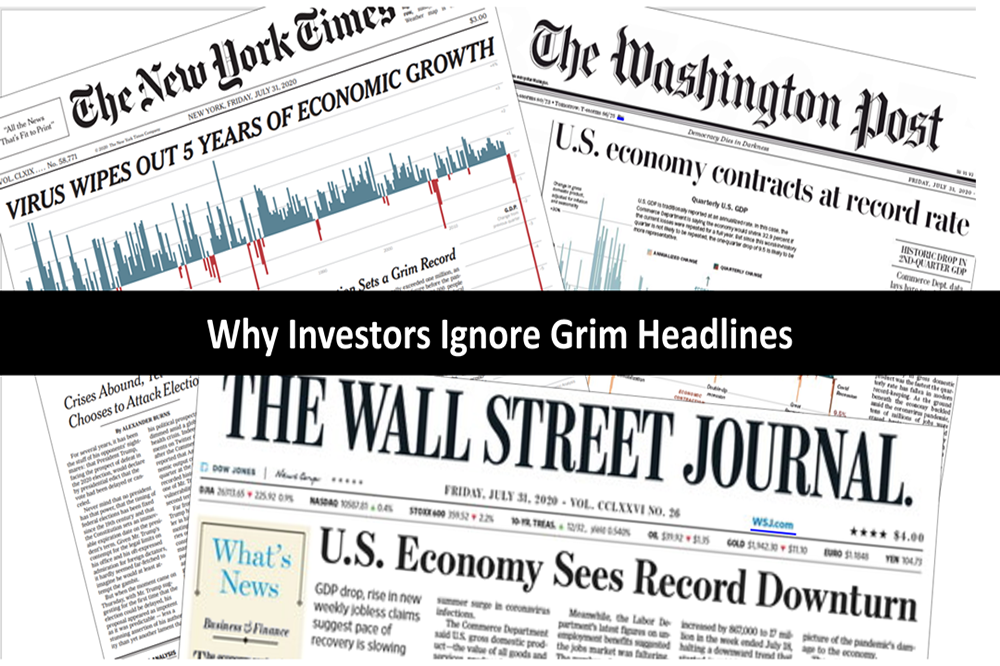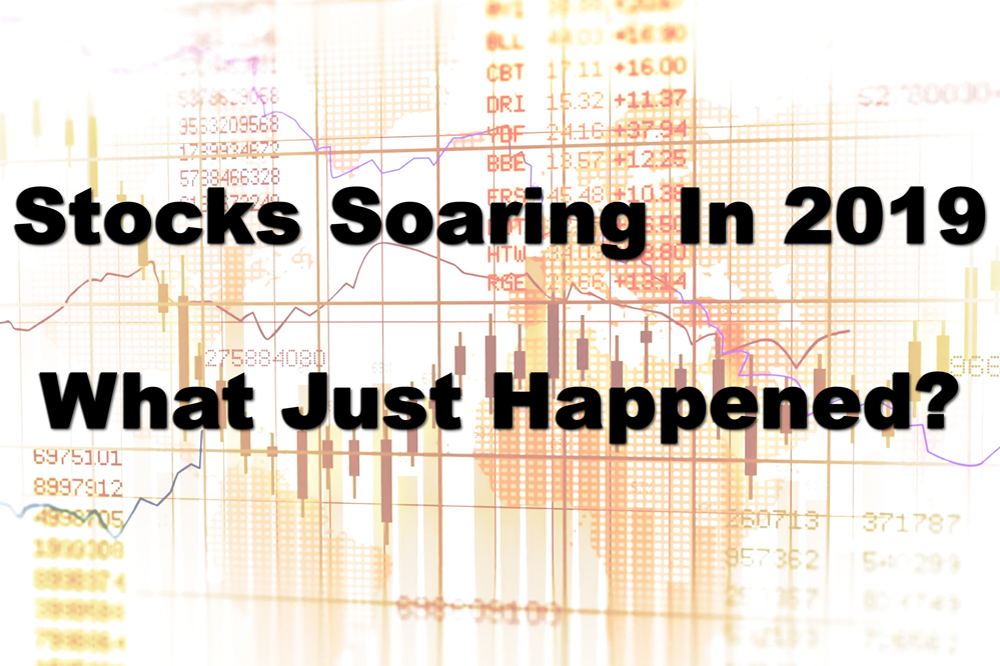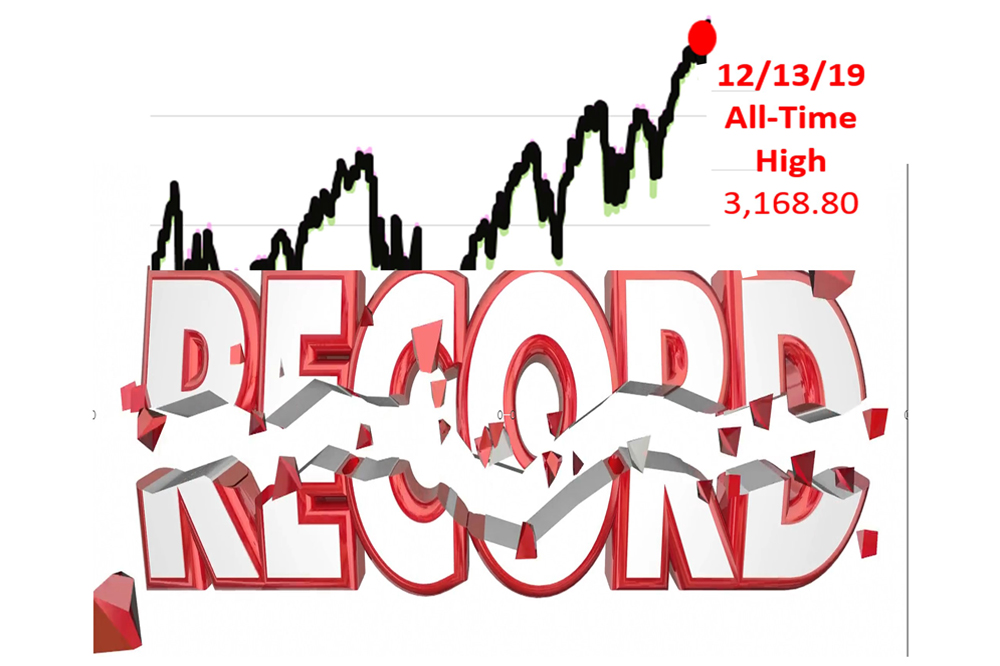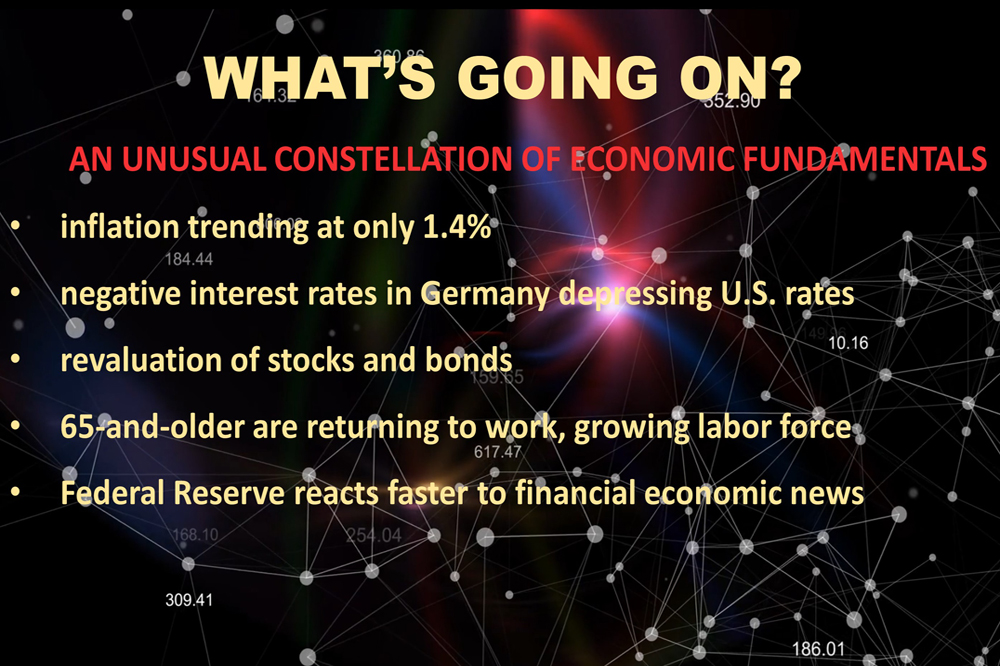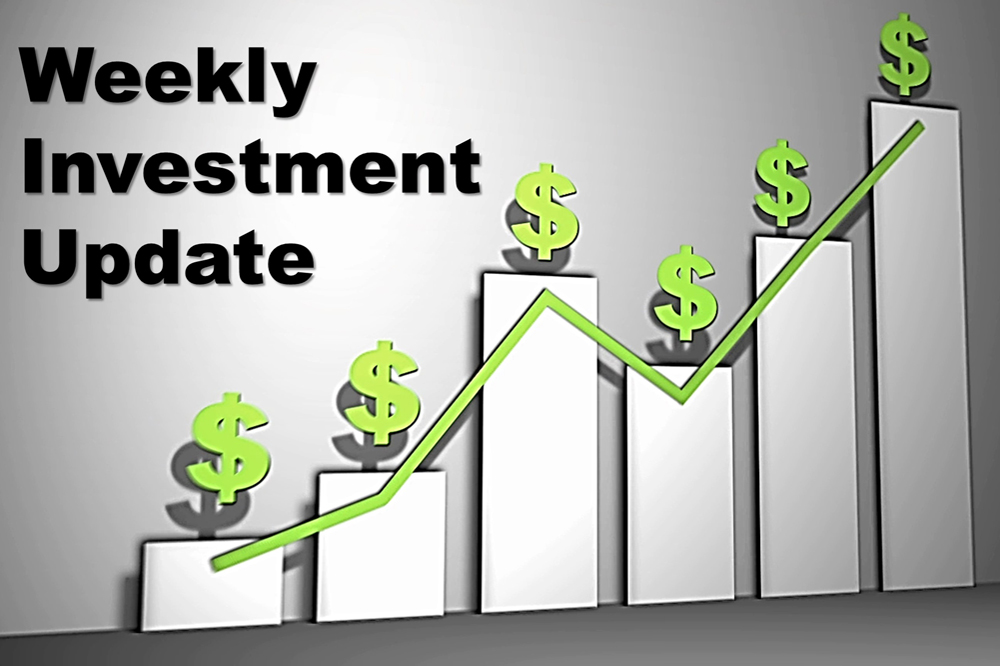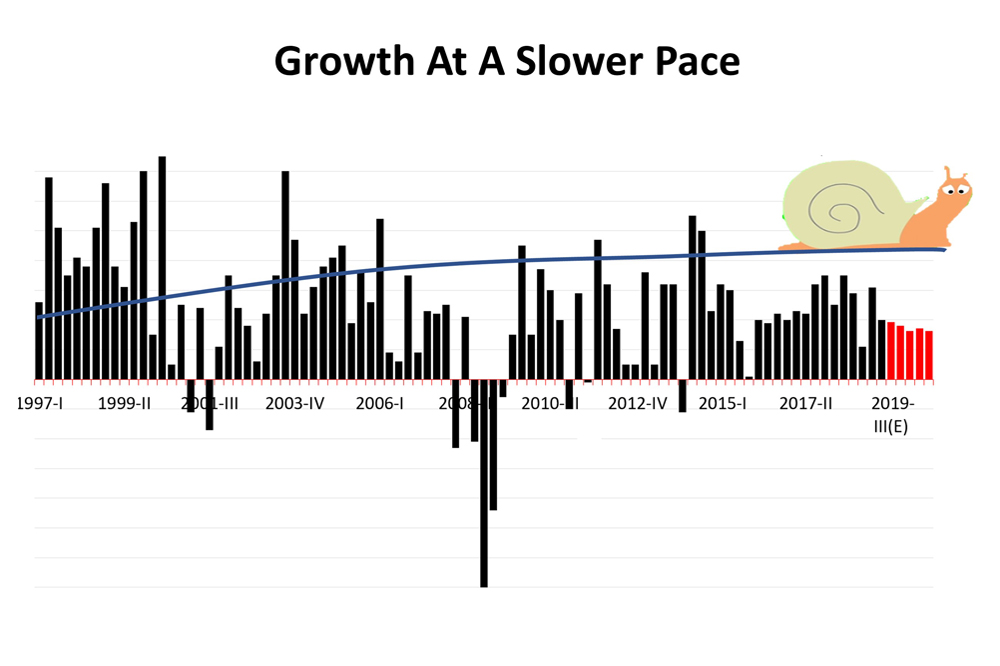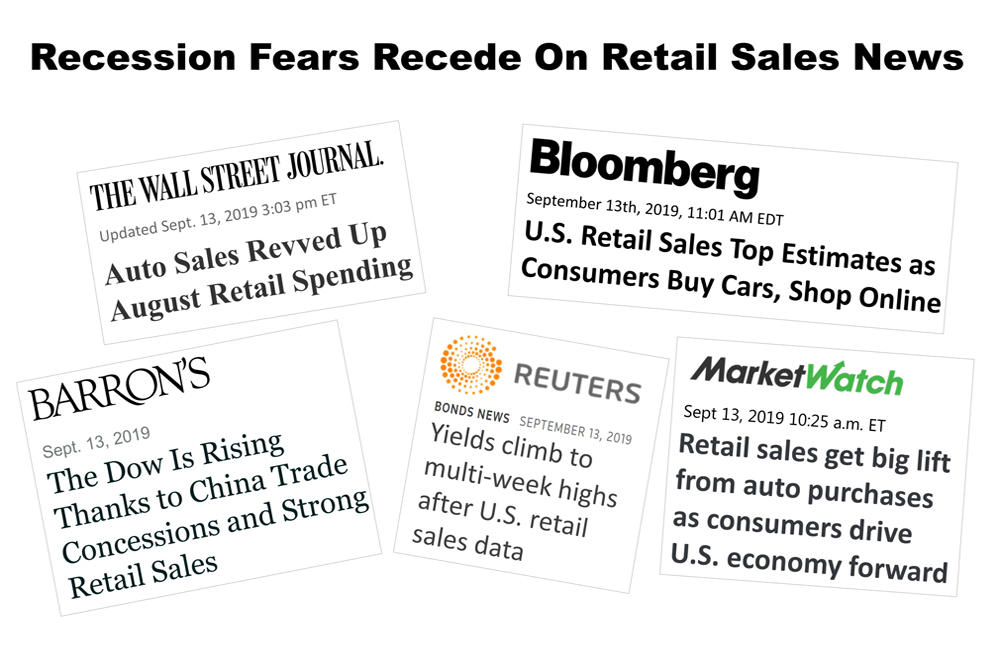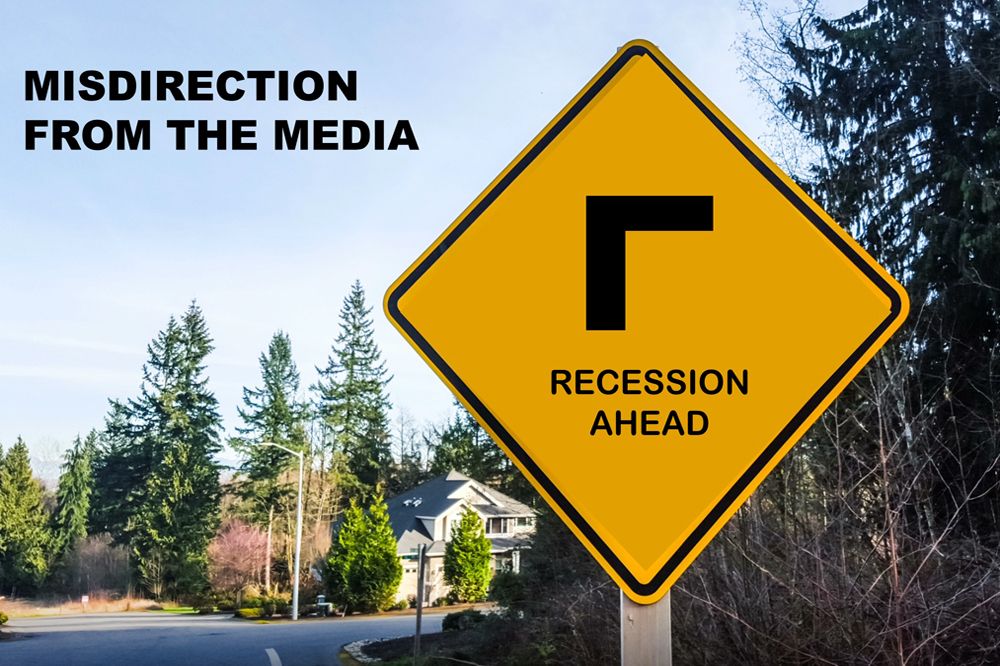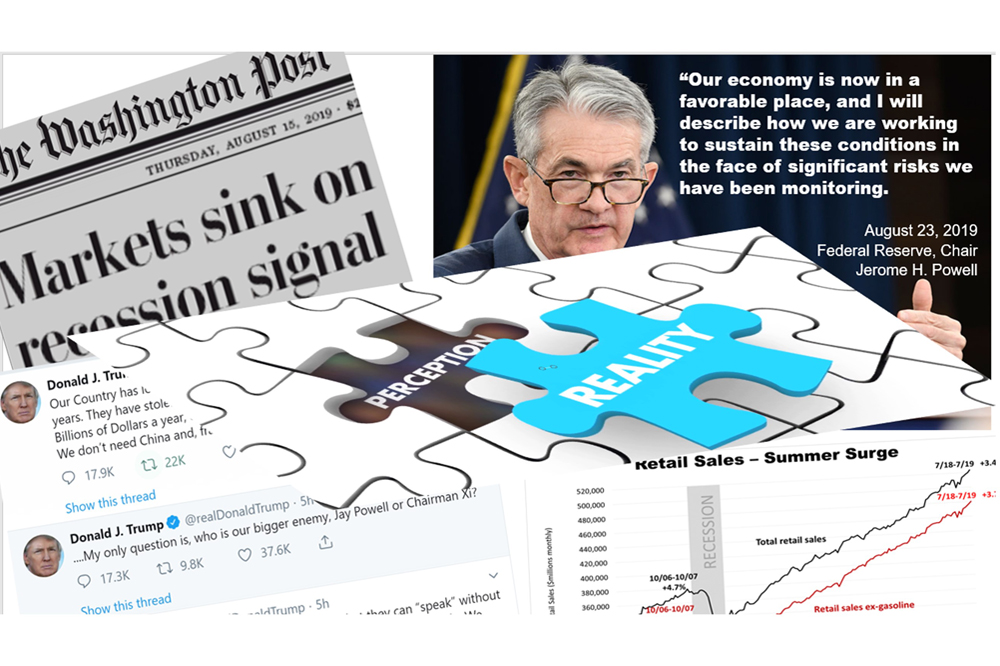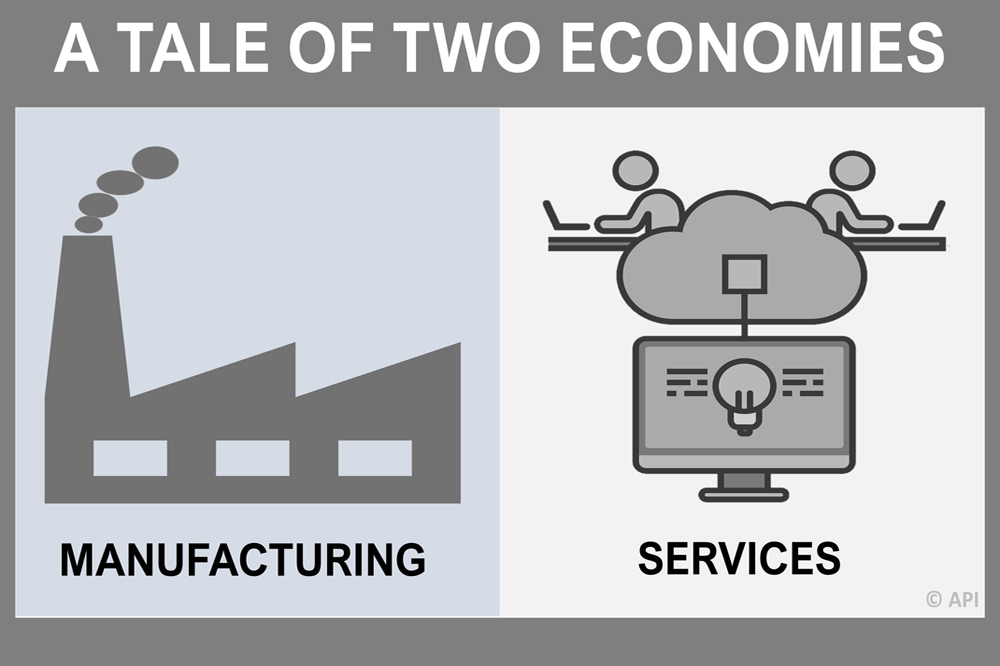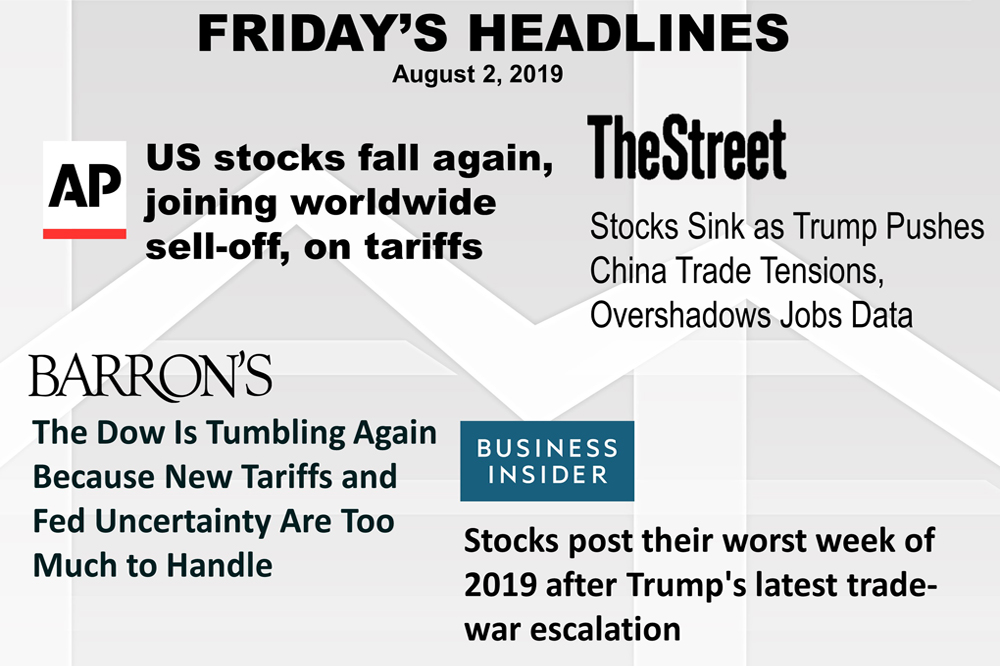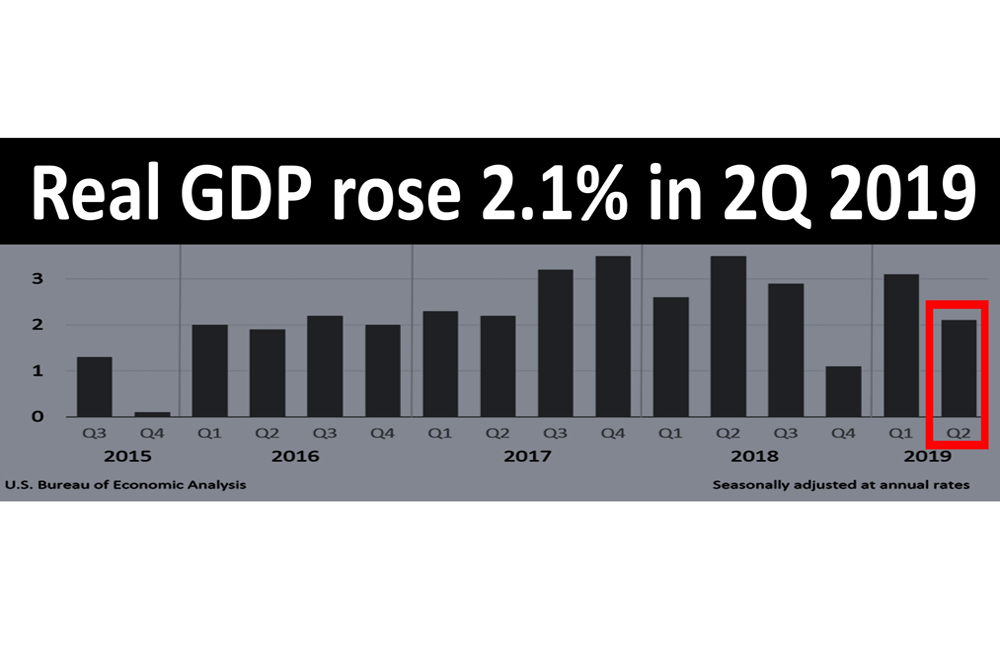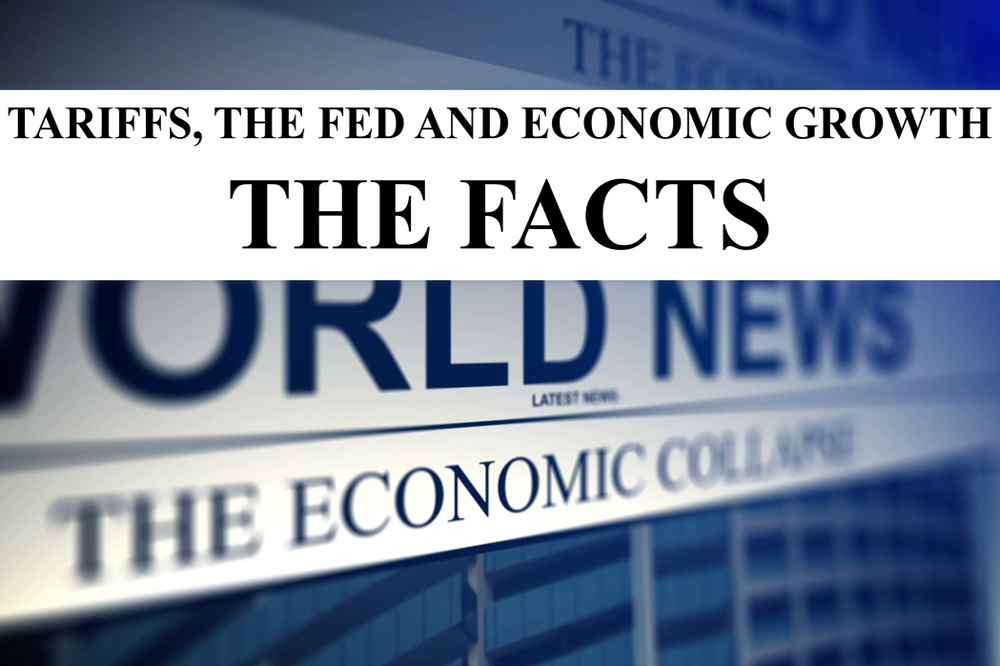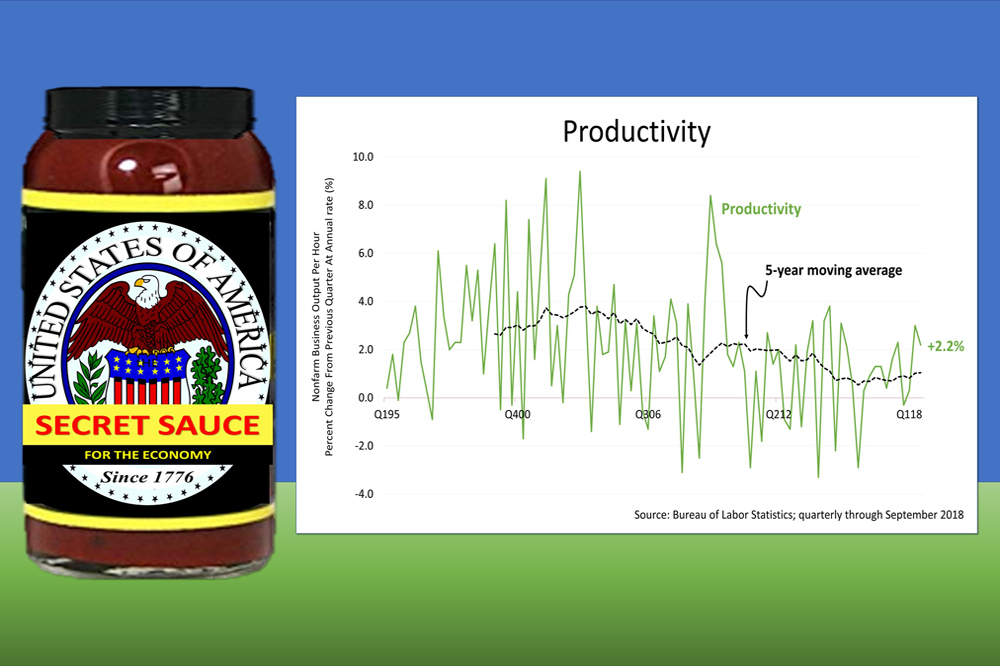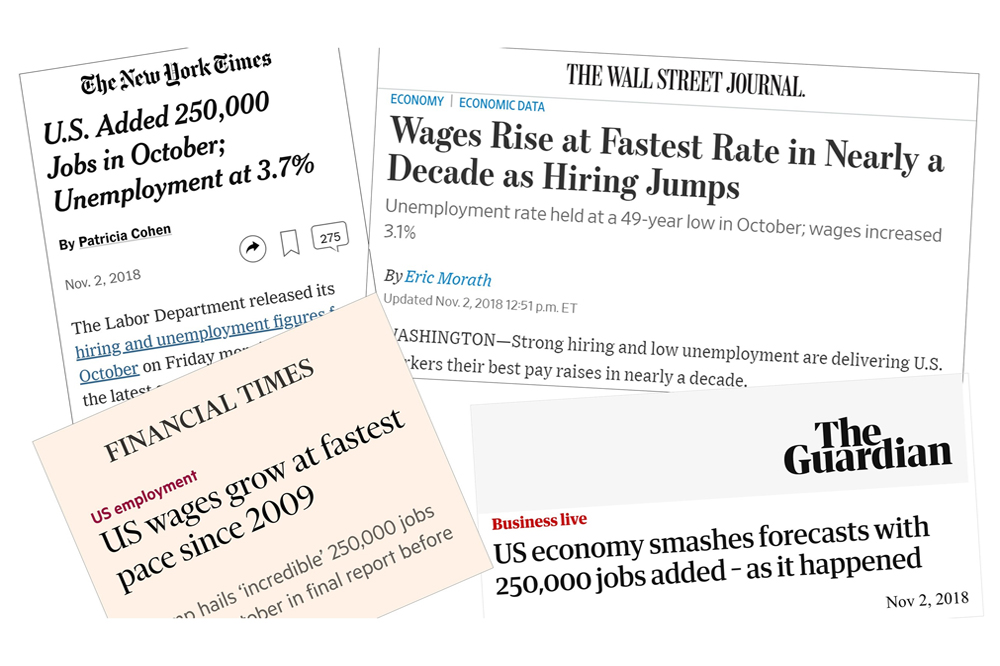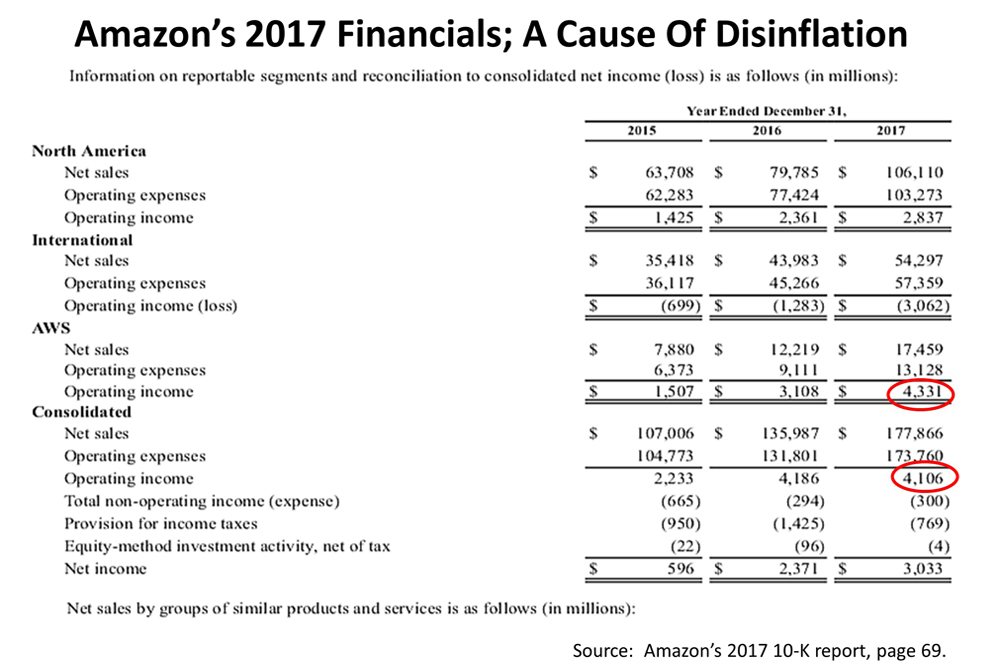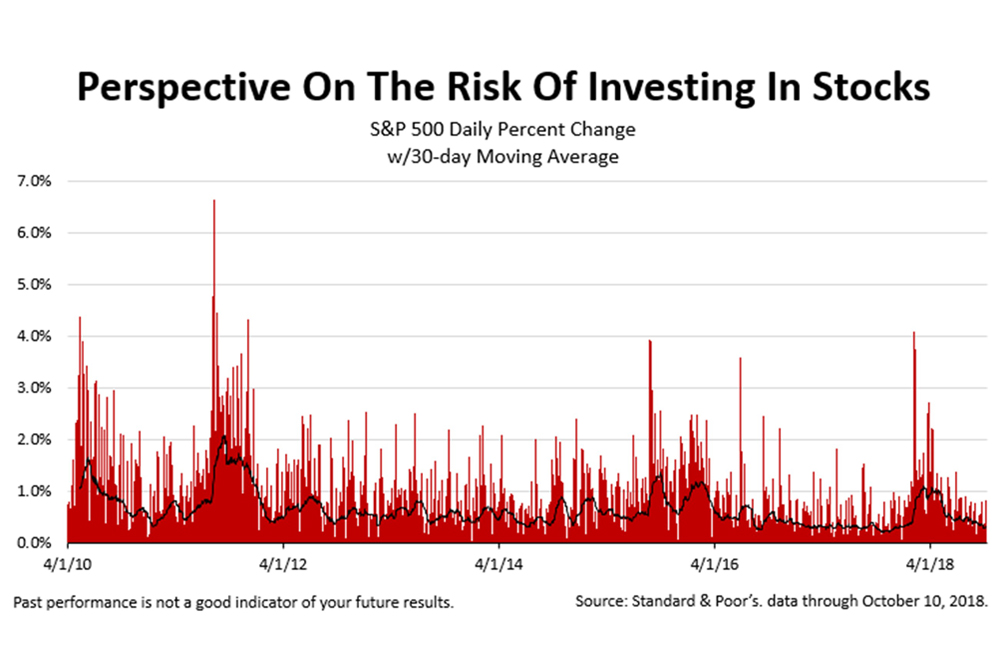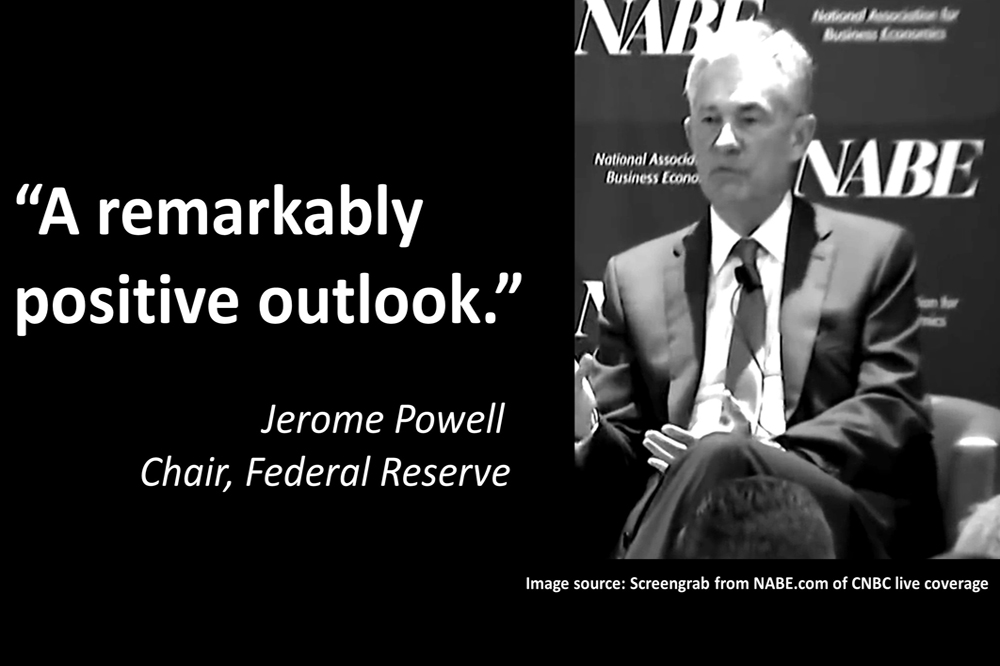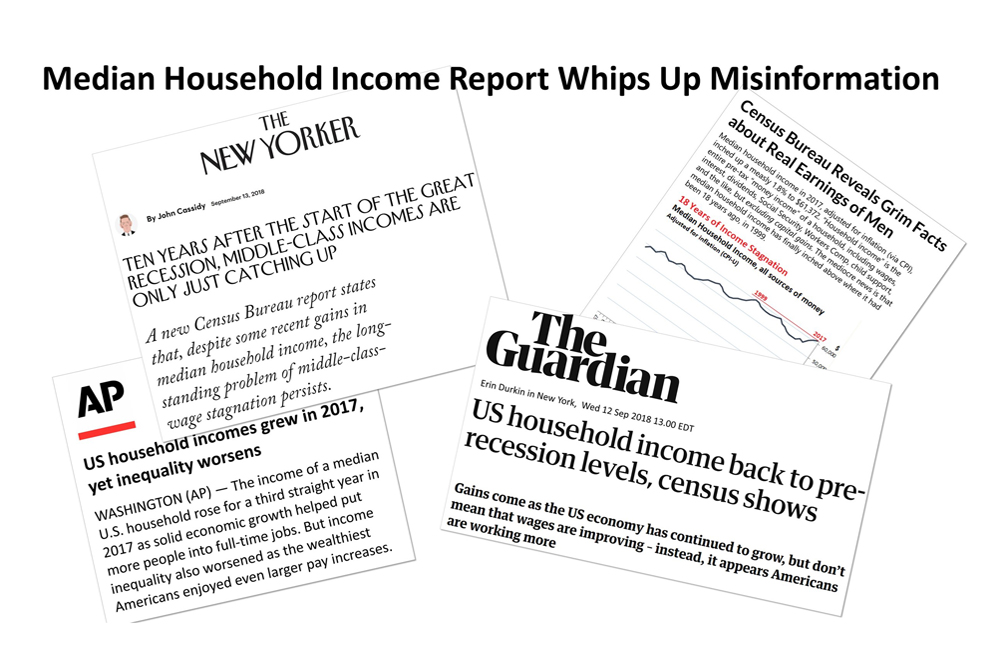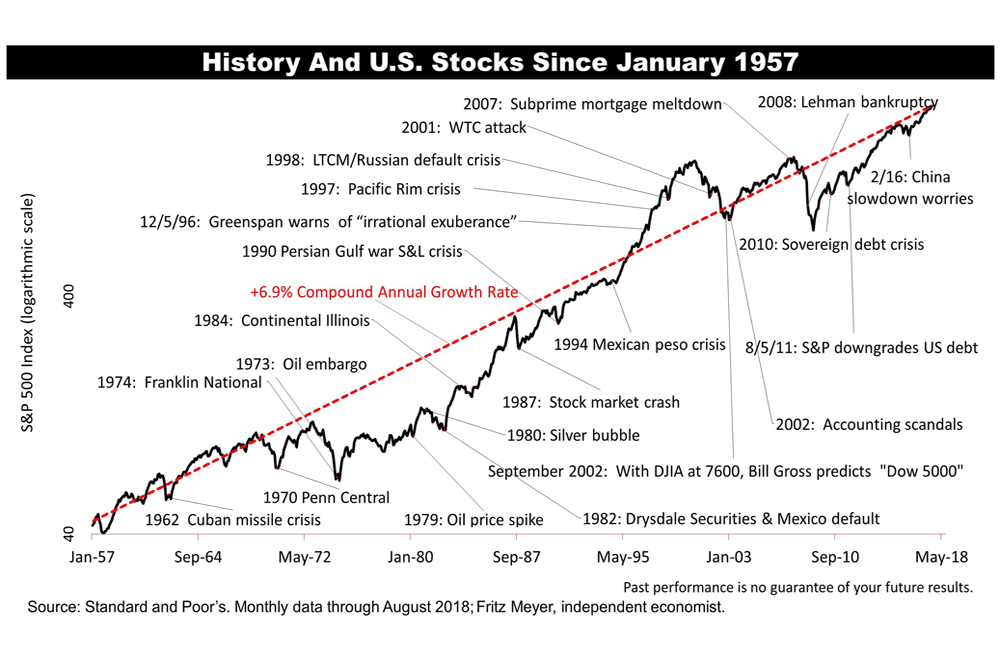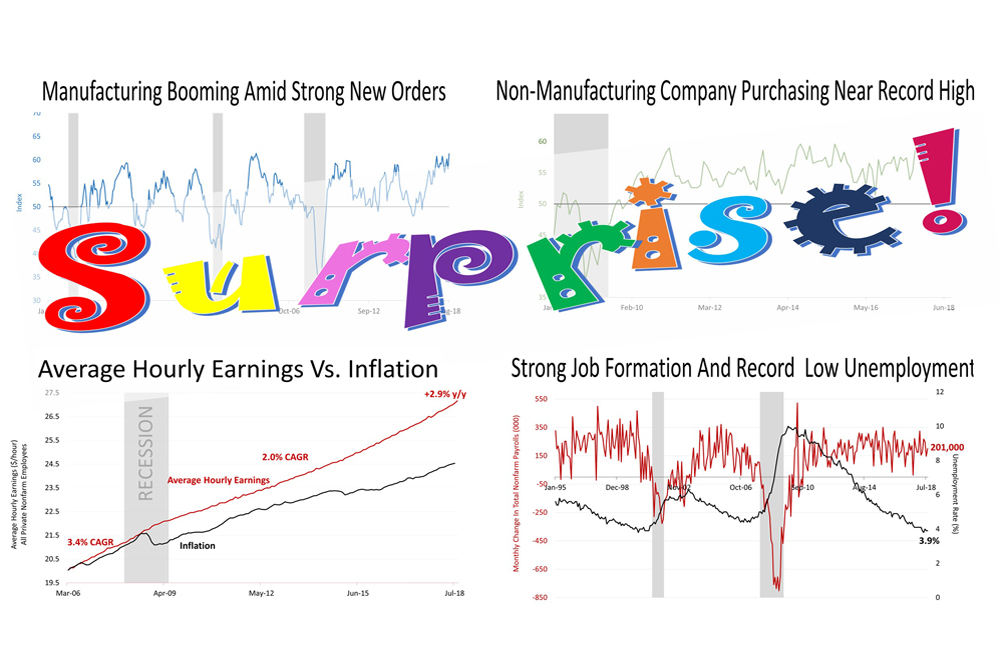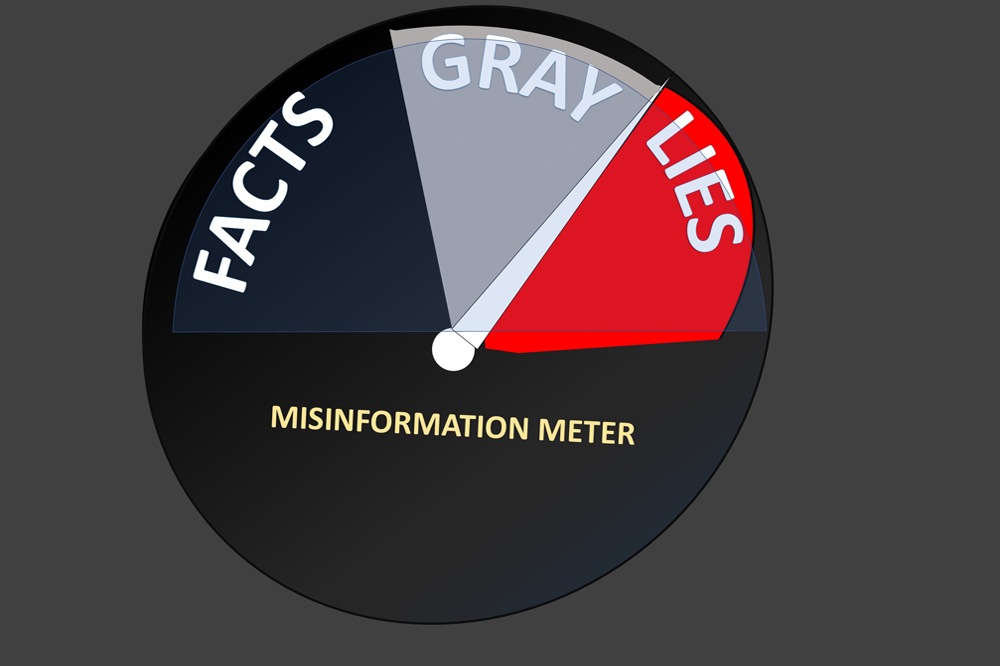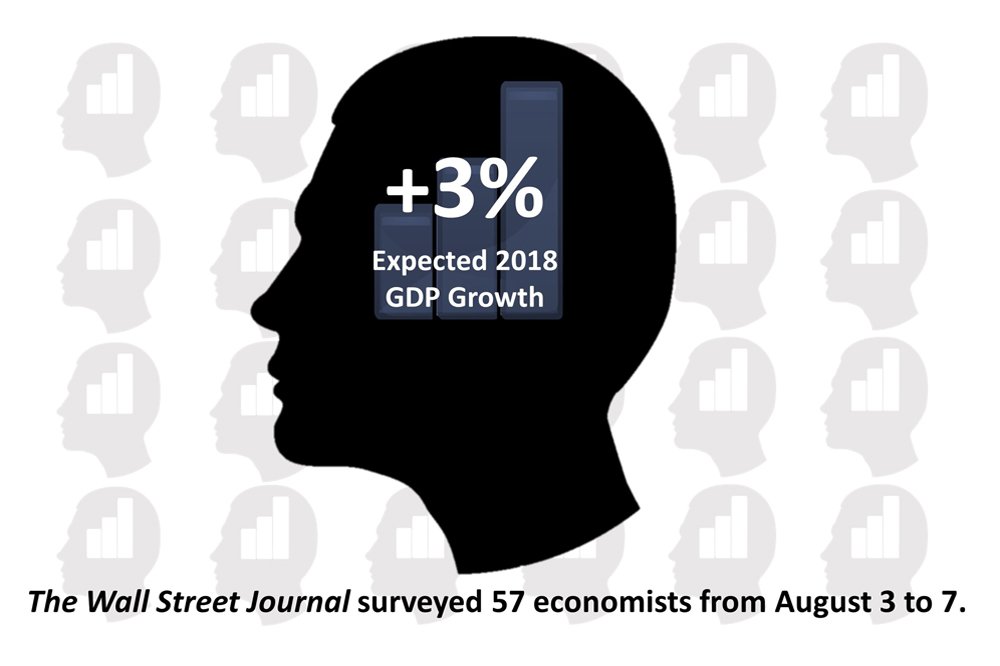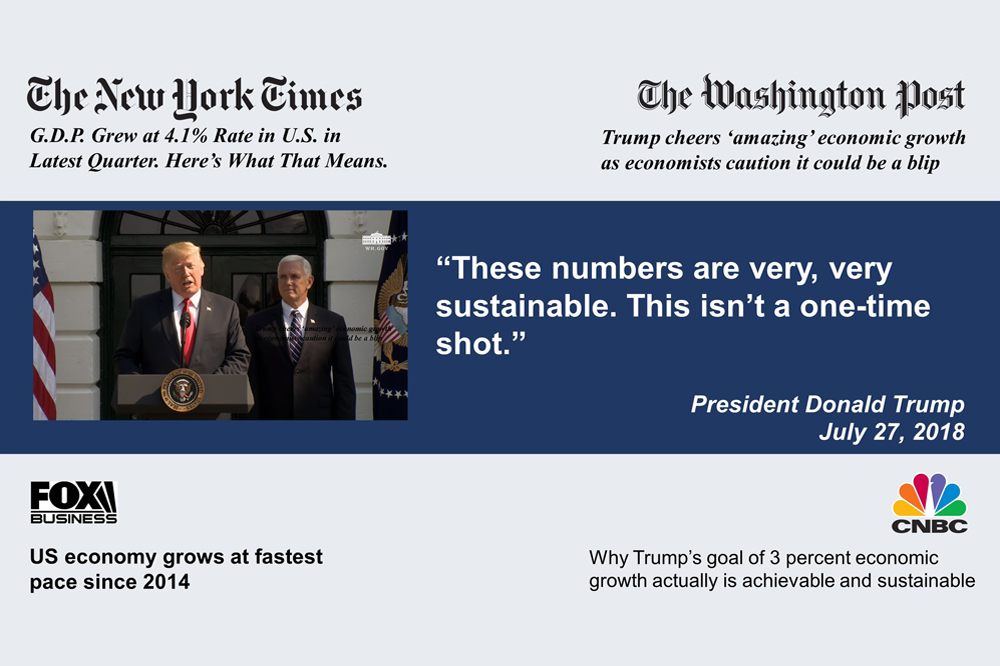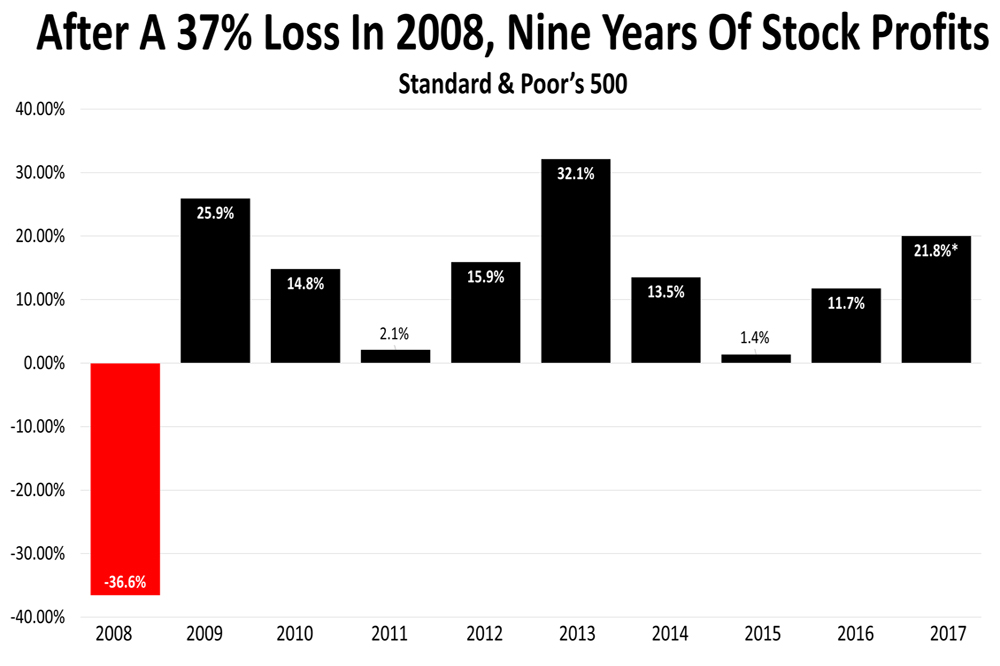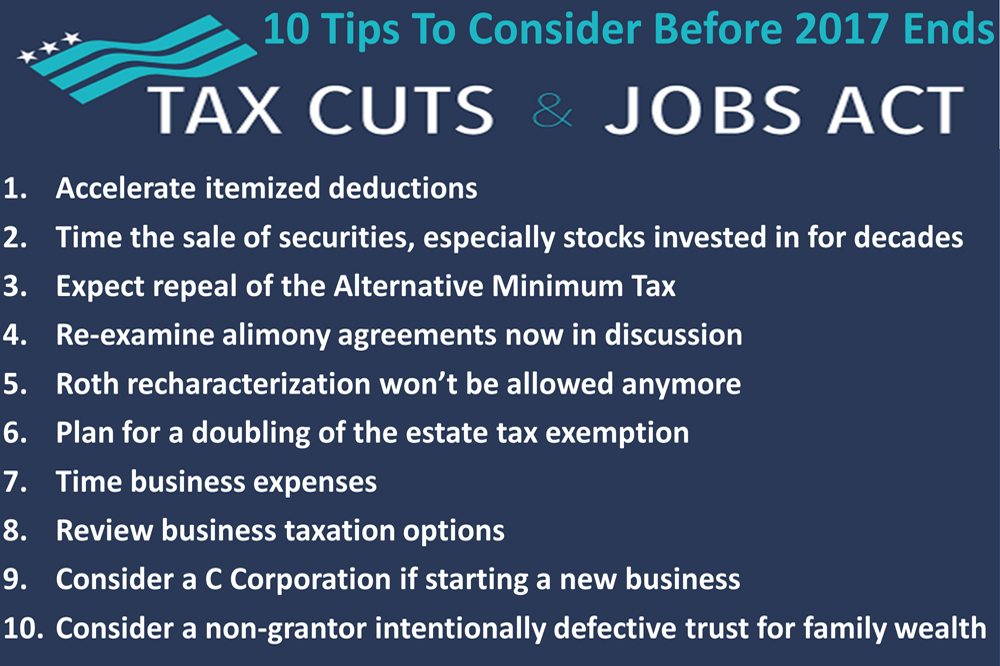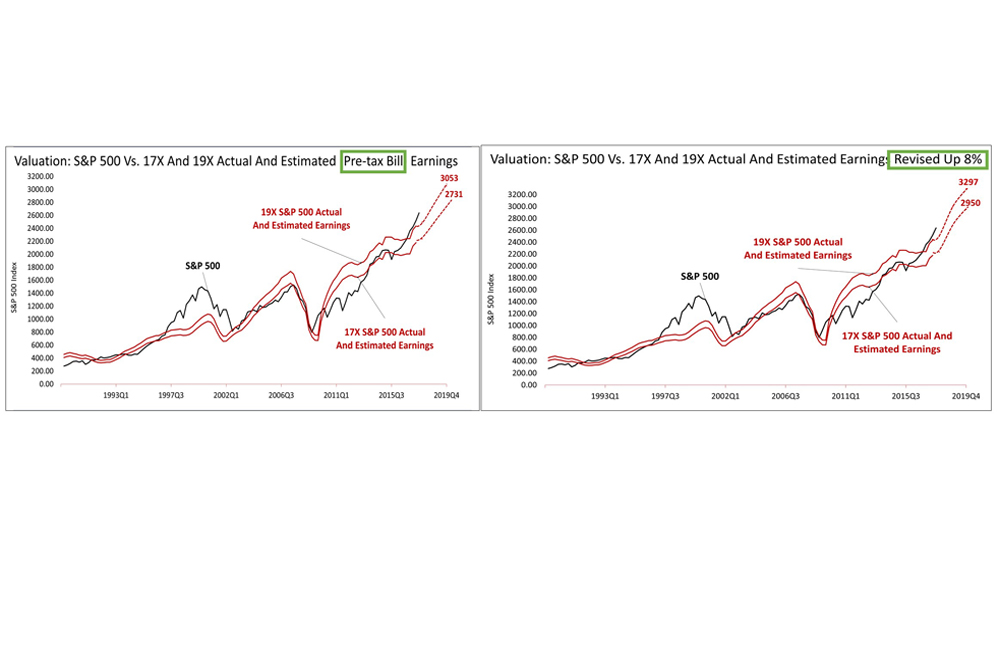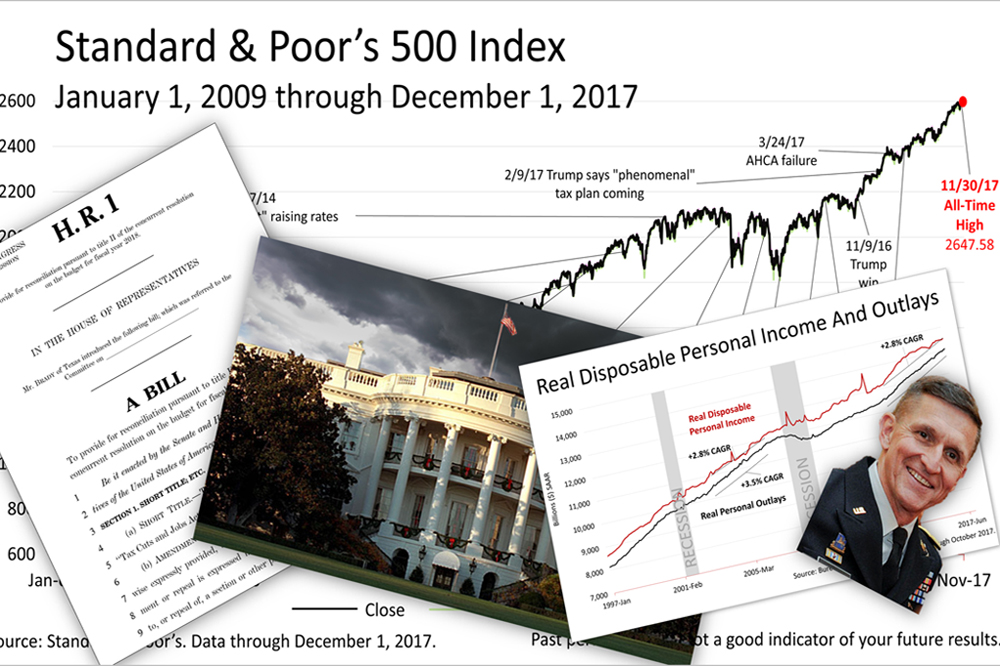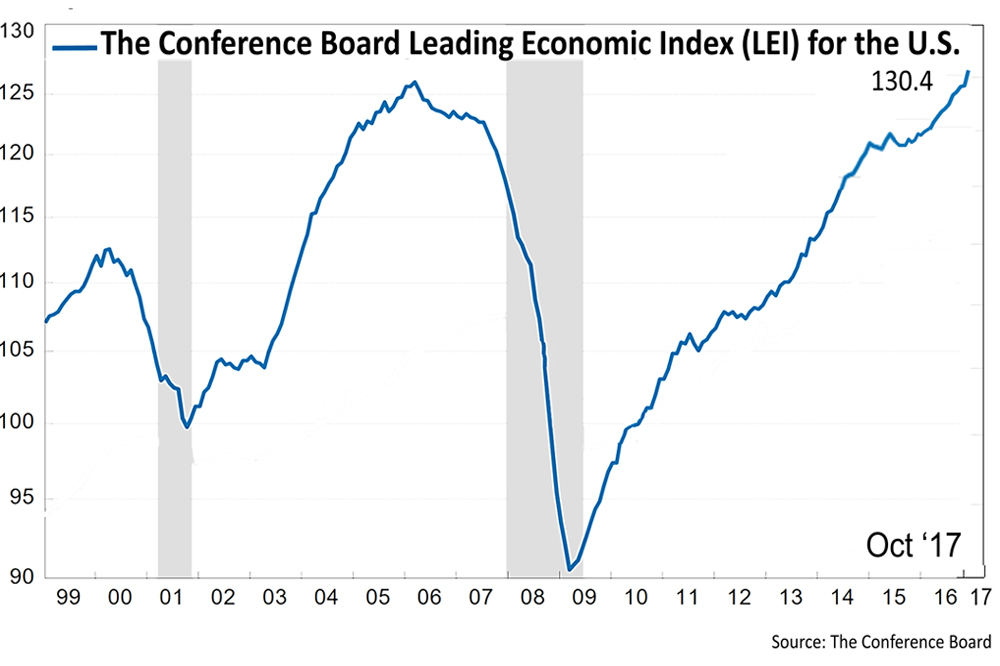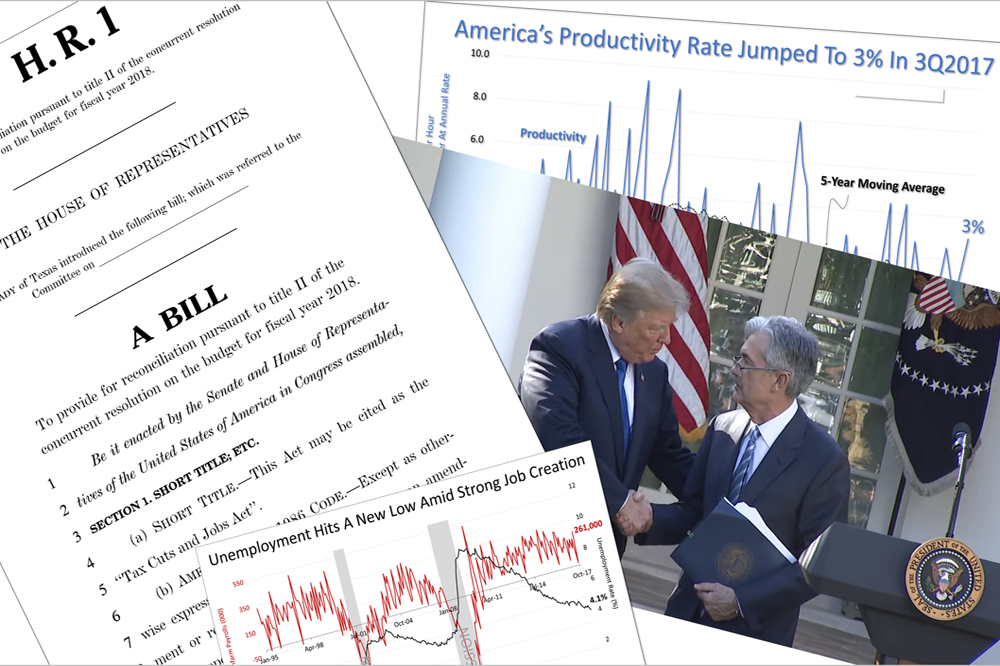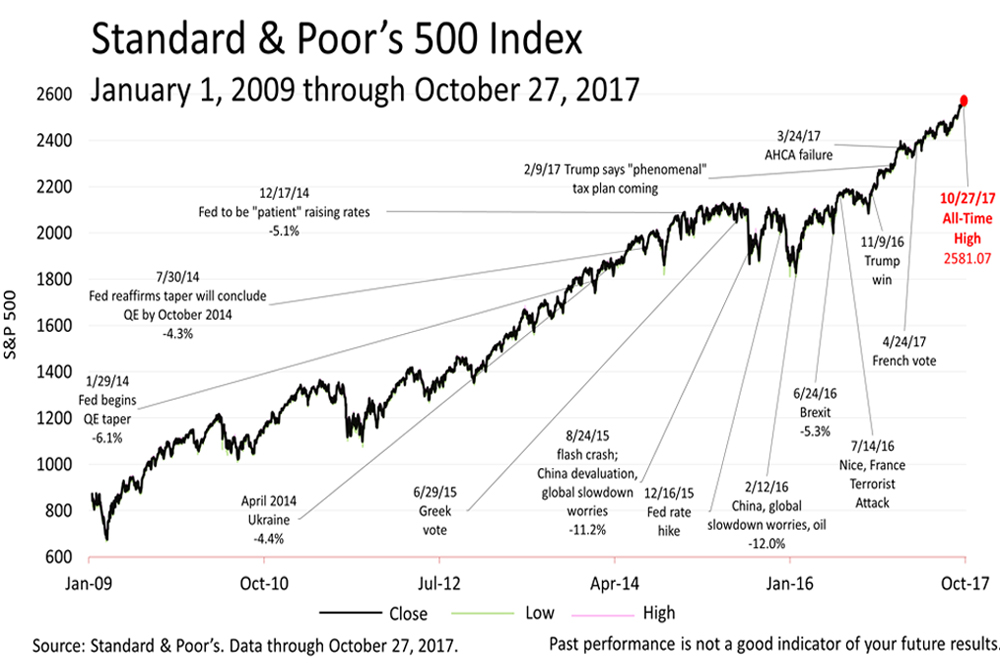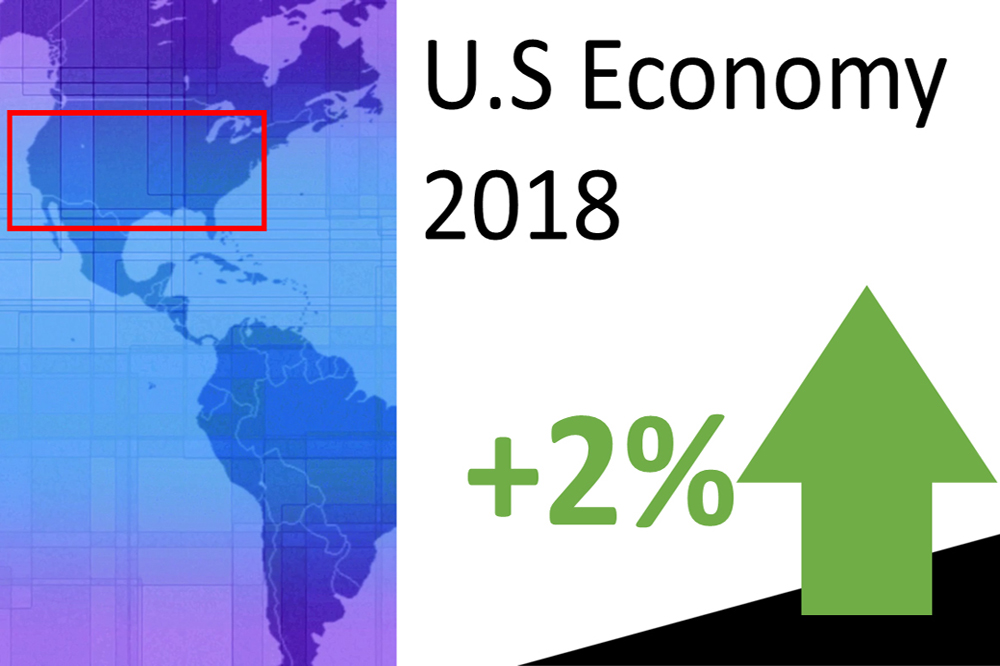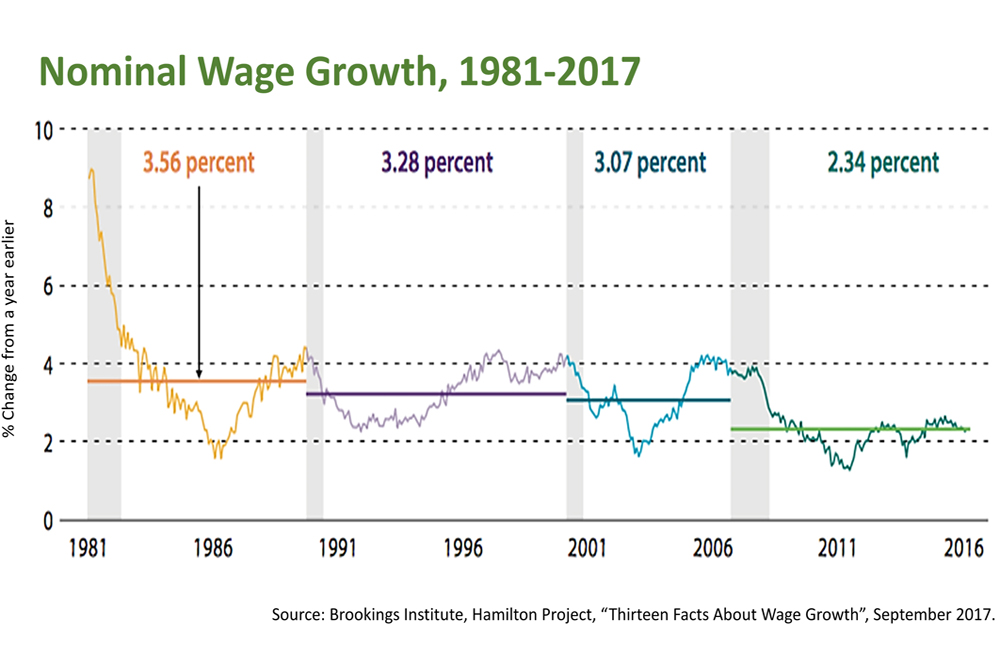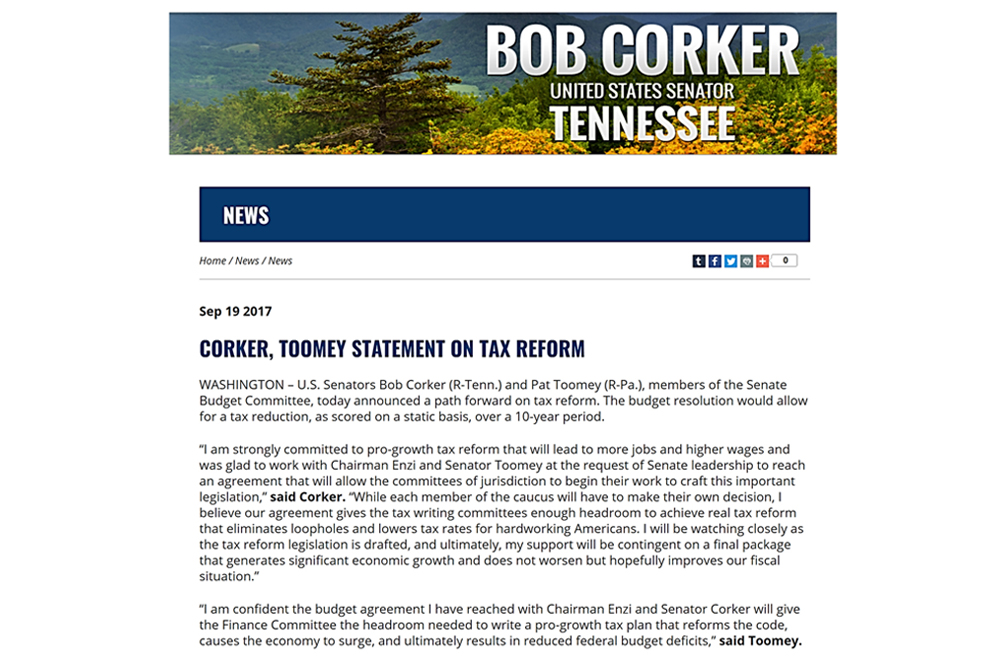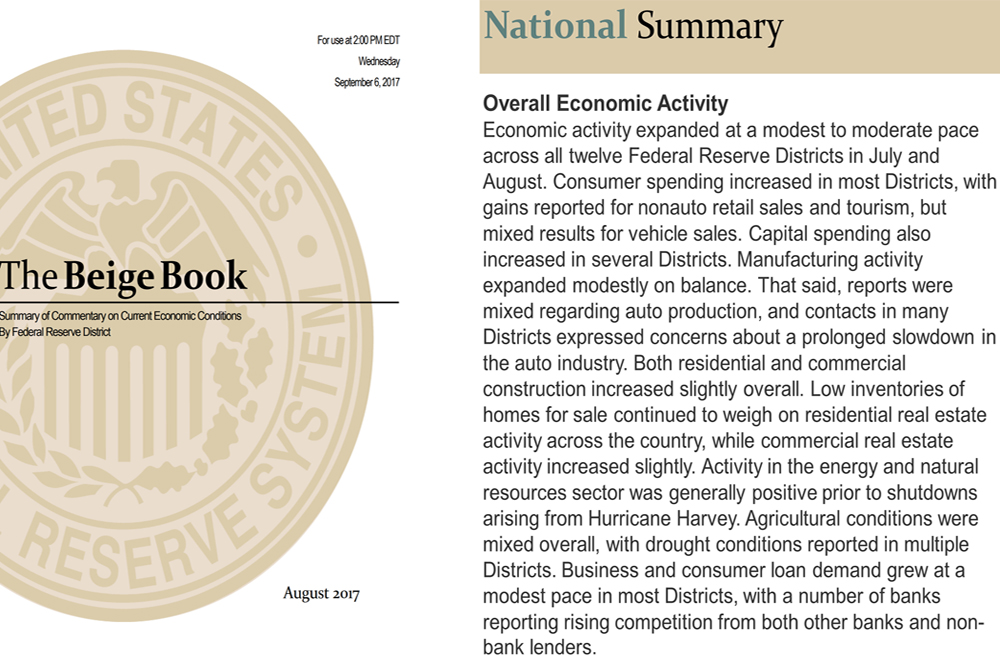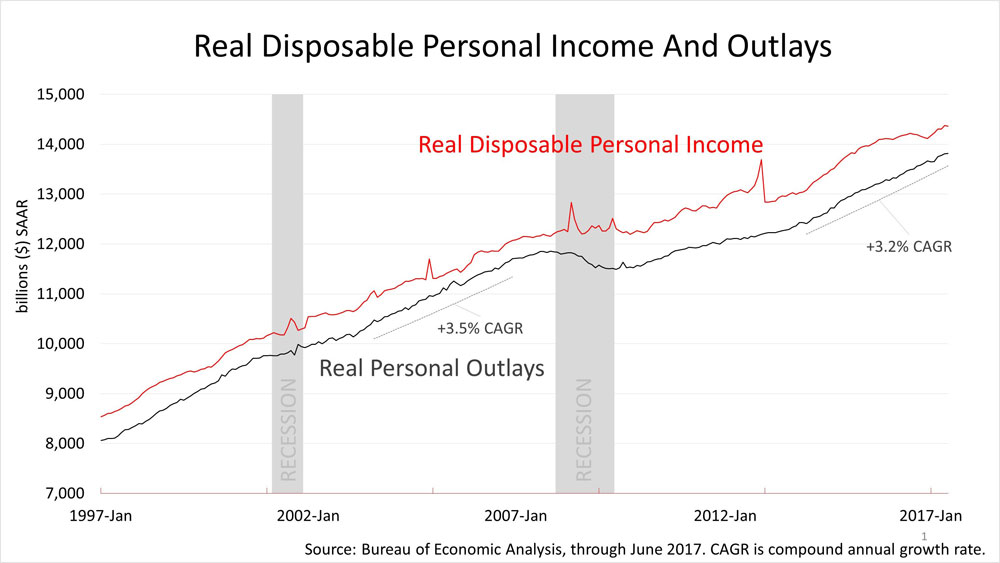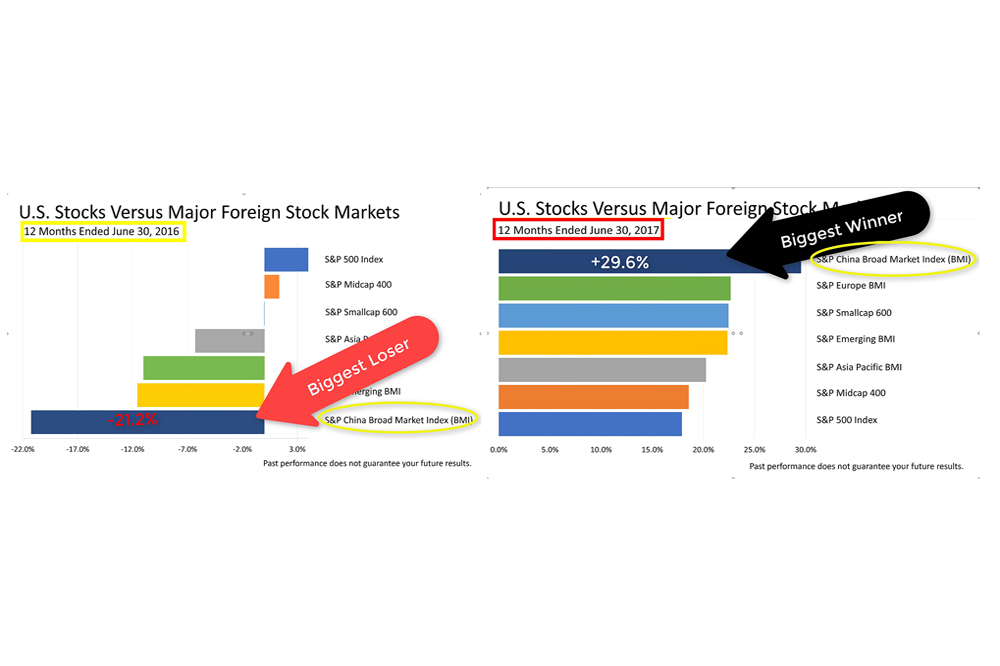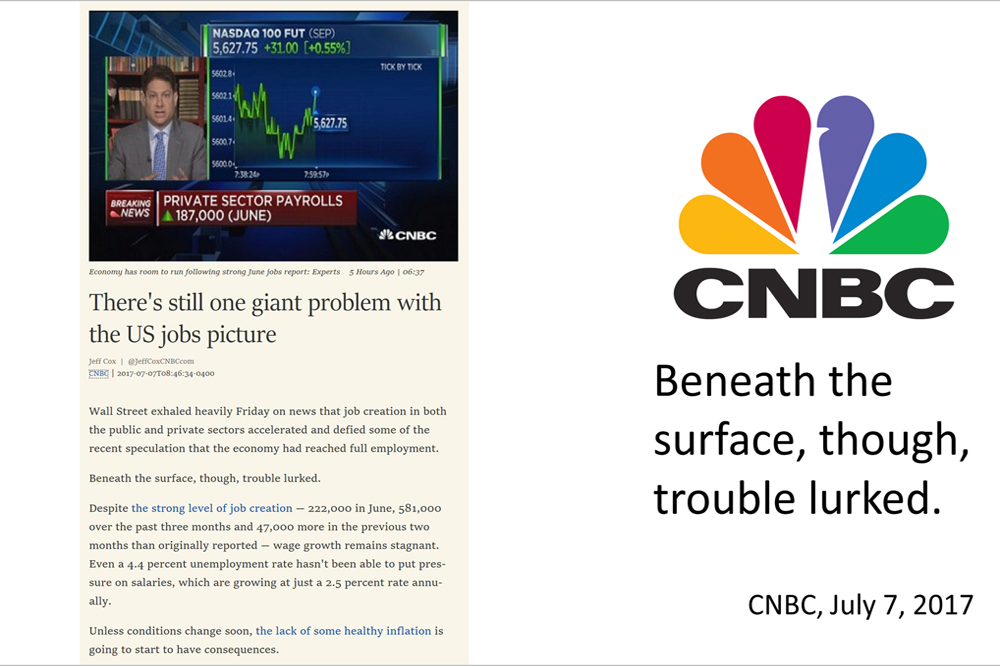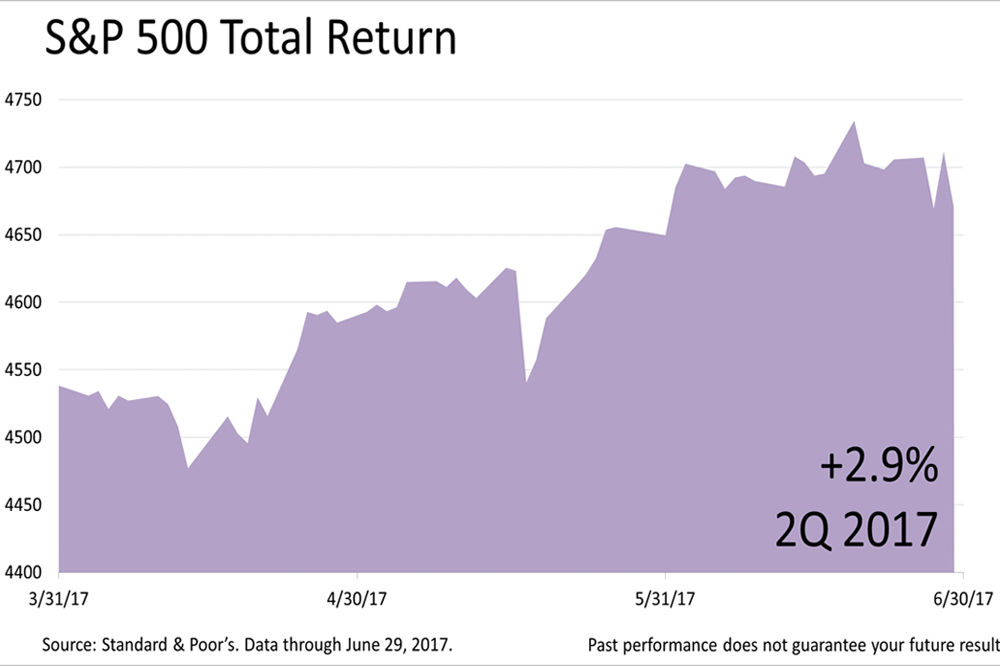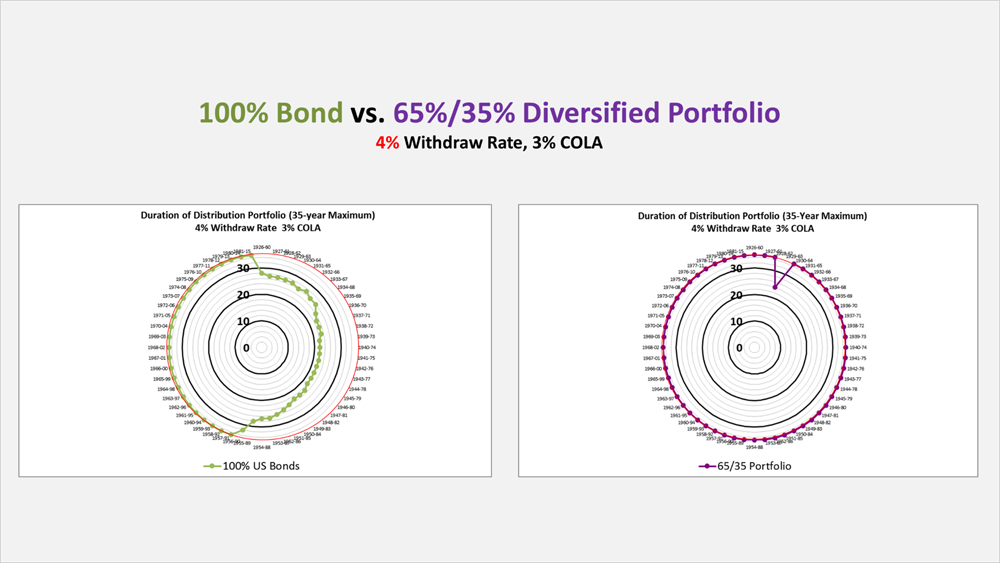Retail Sales Coverage Reflected The Narrow View Of The Media
Published Friday, October 18, 2019 at: 7:00 AM EDT
Retail sales — an important factor in consumer spending, which drives the U.S. economy — declined, according to newly released data from the Commerce Department, and it was followed by gloomy headlines about shaky consumers and seen as a sign that the economy could be cracking. Actually, the headlines illustrate the financial press' often myopic and narrow view of economic news. Sales at U.S. retailers fell three-tenths of 1% in September for the first time in seven months. That's a fact! But news services reported that it signaled that a widely expected slowdown in consumer spending might be underway, without telling consumers the full story, including these other facts: Retail sales excluding gasoline, because its price volatility distorts the retail sales picture, rose +4.7% in the 12 months through September 30th. That was the same 12-month rate as August, and significantly higher than the +3.8% retail sales growth rate in July. While the one-month decline is not good news, the 12-month rate is much more important in judging the trend. The retail sales numbers have a history of volatility month to month, and three ticks down in September does not fairly reflect what's happening. Moreover, real retail sales after inflation have actually been surging for many months. Real retail sales excluding gasoline in August were up +3.2% y/y, from +2.4%% y/y in July. This figure is very strong by historical standards and it reflects the real consumer purchasing trend after inflation. The Standard & Poor's 500 stock index closed the week on Friday at 2,986.20, less than 2% from its all-time closing high. This article was written by a veteran financial journalist based on data compiled and analyzed by independent economist, Fritz Meyer. While these are sources we believe to be reliable, the information is not intended to be used as financial or tax advice without consulting a professional about your personal situation. Tax laws are subject to change. Indices are unmanaged and not available for direct investment. Investments with higher return potential carry greater risk for loss. No one can predict the future of the stock market or any investment, and past performance is never a guarantee of your future results.
This article was written by a veteran financial journalist based on data compiled and analyzed by independent economist, Fritz Meyer. While these are sources we believe to be reliable, the information is not intended to be used as financial advice without consulting a professional about your personal situation. Indices are unmanaged and not available for direct investment. Investments with higher return potential carry greater risk for loss. Past performance is not an indicator of your future results.
2024
-
 Stocks Closed At A Record High
Stocks Closed At A Record High
-
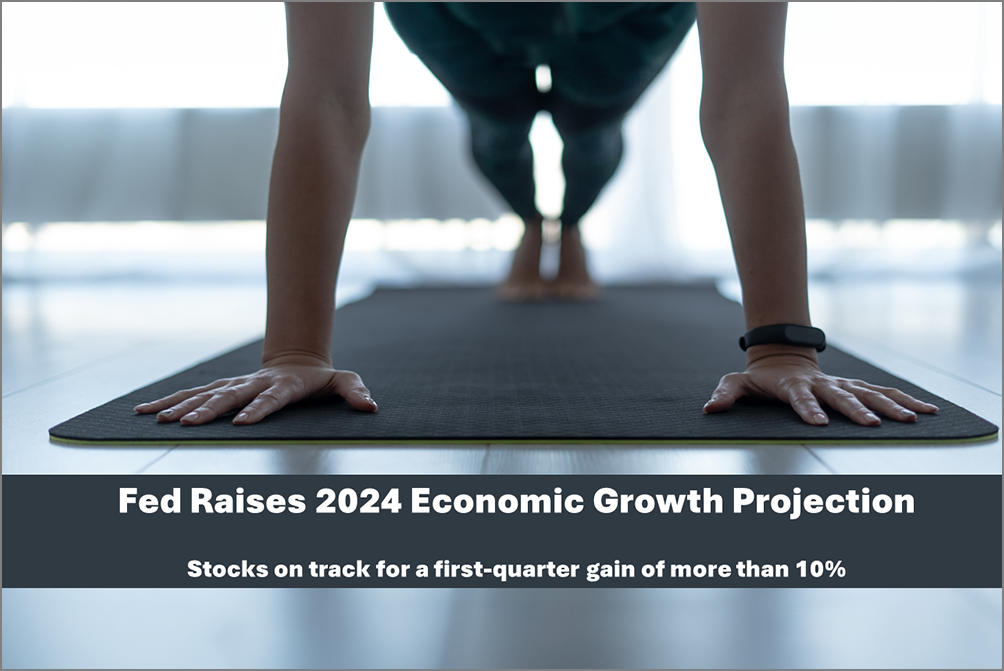 Federal Reserve Projects Strong Growth
Federal Reserve Projects Strong Growth
-
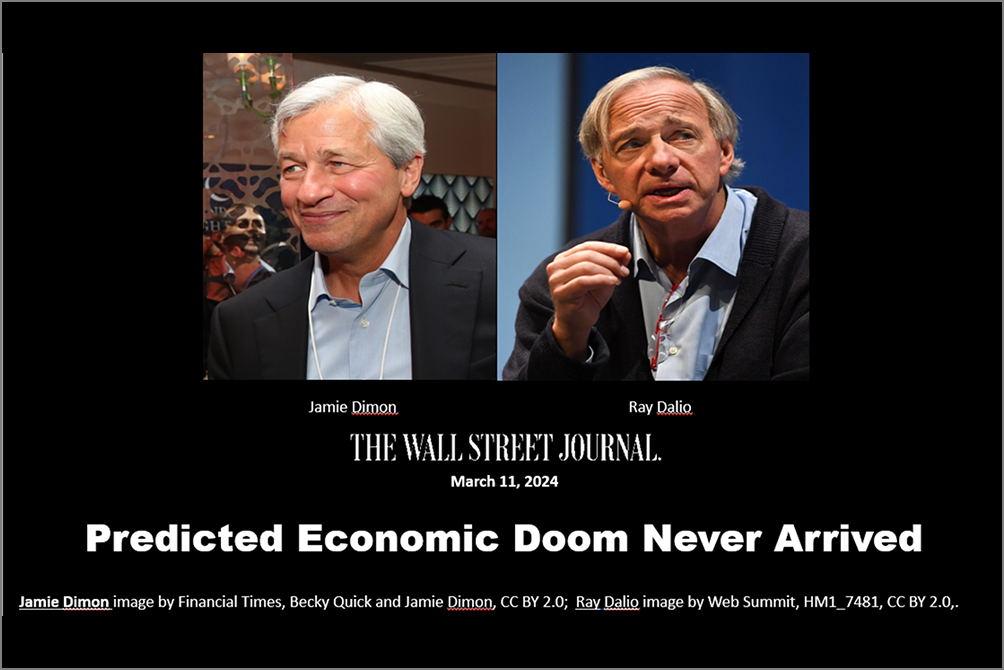 The Best People Were Wrong
The Best People Were Wrong
-
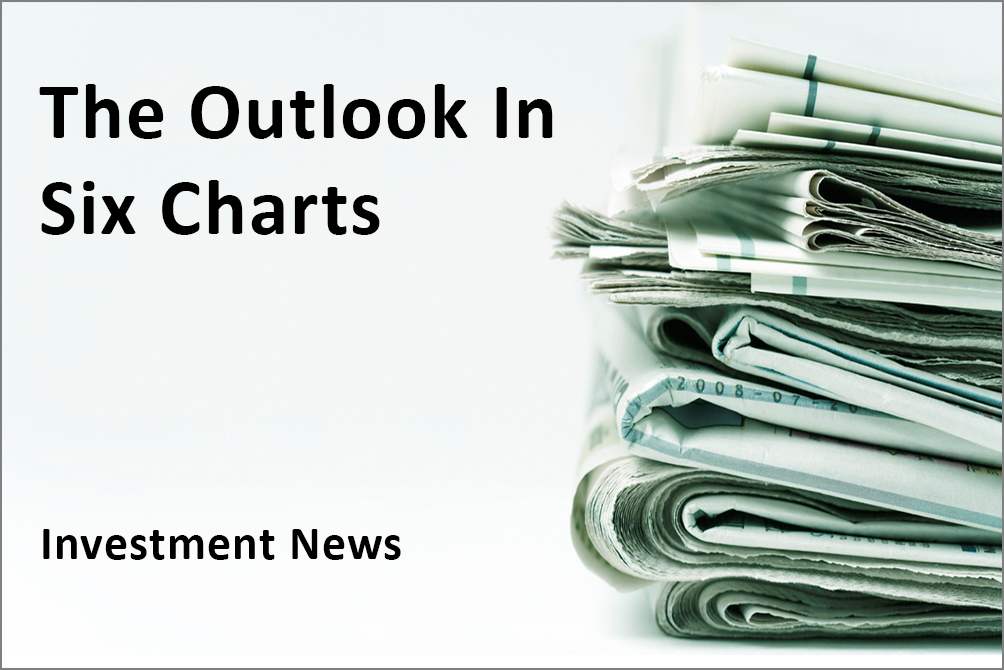 This Week’s Investment News In Six Charts
This Week’s Investment News In Six Charts
-
 U.S. Investor Picture Of The Week
U.S. Investor Picture Of The Week
-
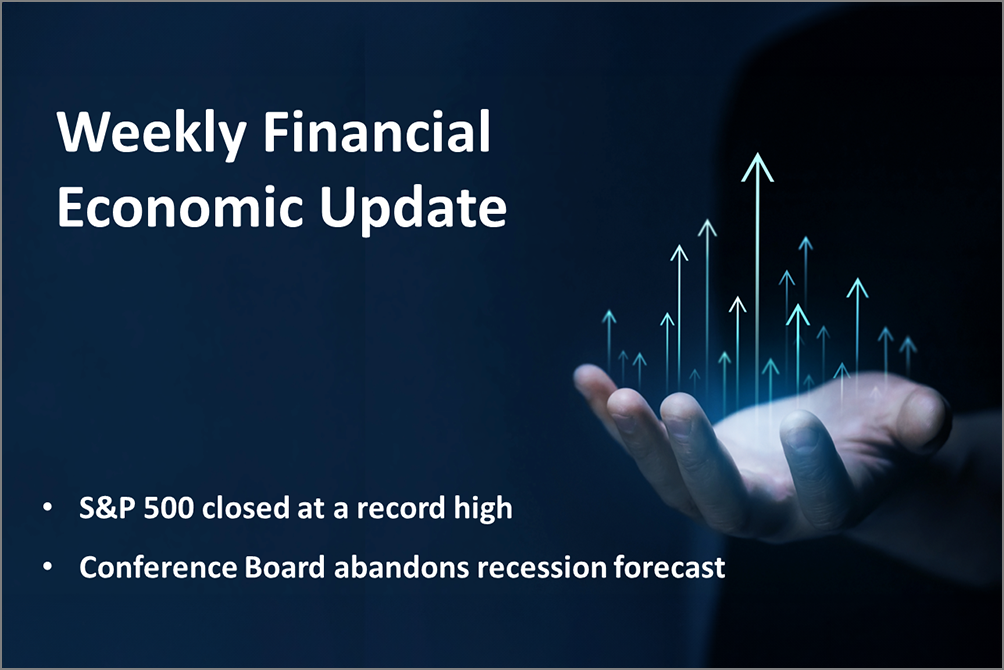 The Conference Board Backs Off Its Recession Forecast
The Conference Board Backs Off Its Recession Forecast
-
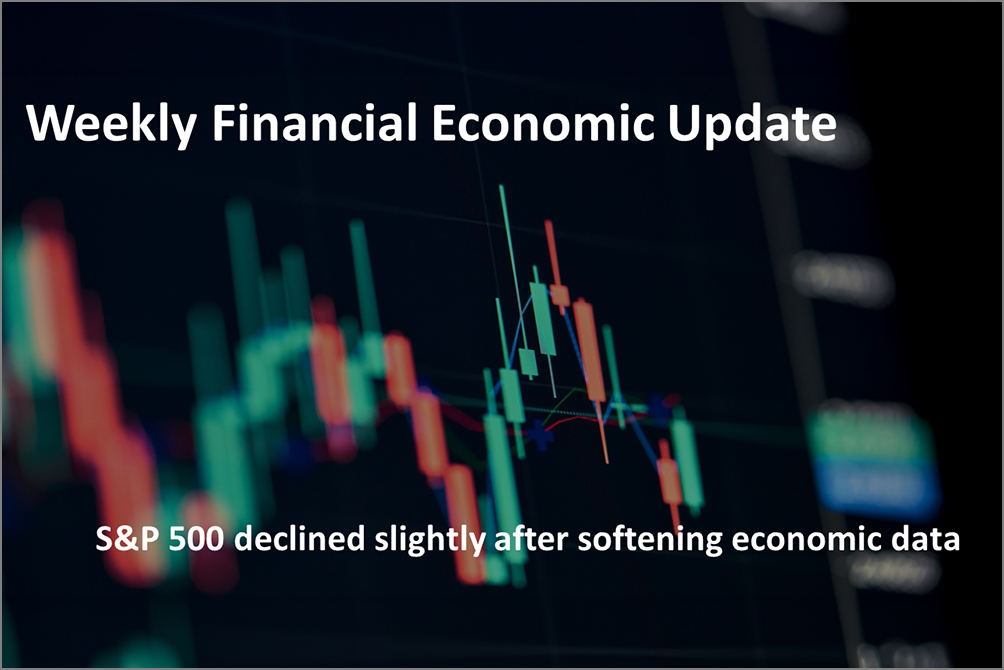 Softening Economic Data, Inflation Fears Dampen Stock Rally
Softening Economic Data, Inflation Fears Dampen Stock Rally
-
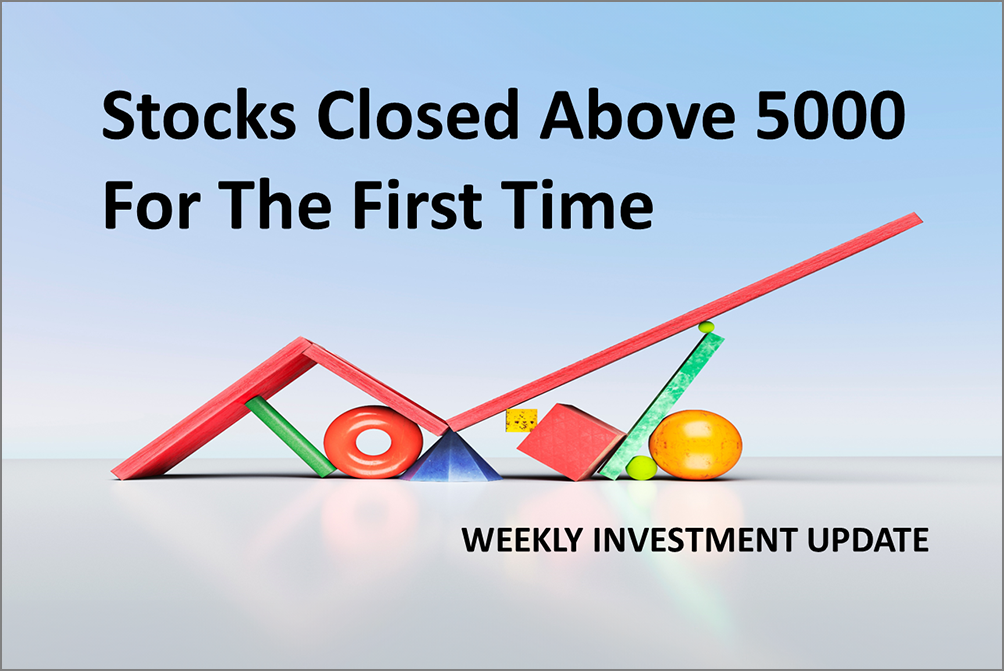 S&P 500 Closes Above 5000 For The First Time Ever
S&P 500 Closes Above 5000 For The First Time Ever
-
 Why America Is The World’s Economic Leader
Why America Is The World’s Economic Leader
-
 Investment News For The Week Ended Friday, January 26
Investment News For The Week Ended Friday, January 26
-
 Why Stocks Broke The All-Time Record High
Why Stocks Broke The All-Time Record High
-
 A Strategic Update, With Stocks Near All-Time High And Crises Unfolding
A Strategic Update, With Stocks Near All-Time High And Crises Unfolding






